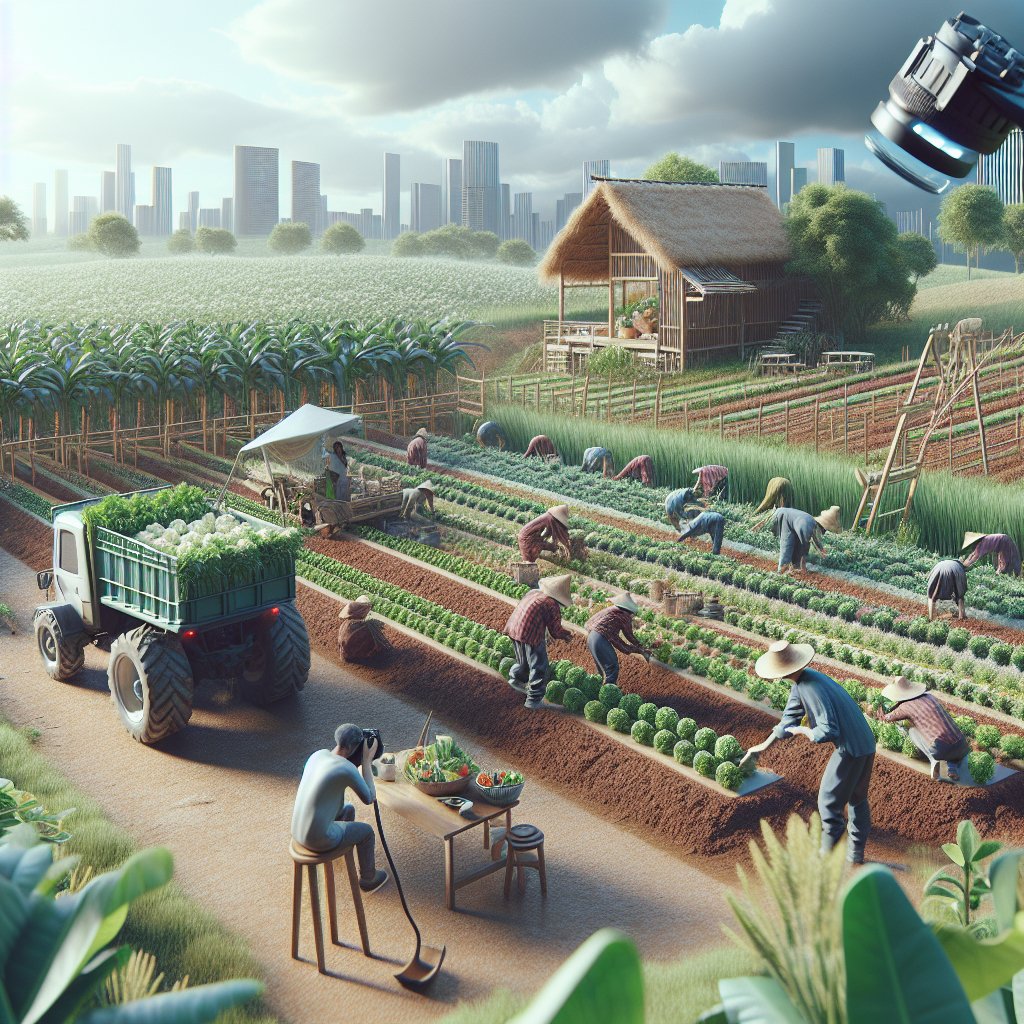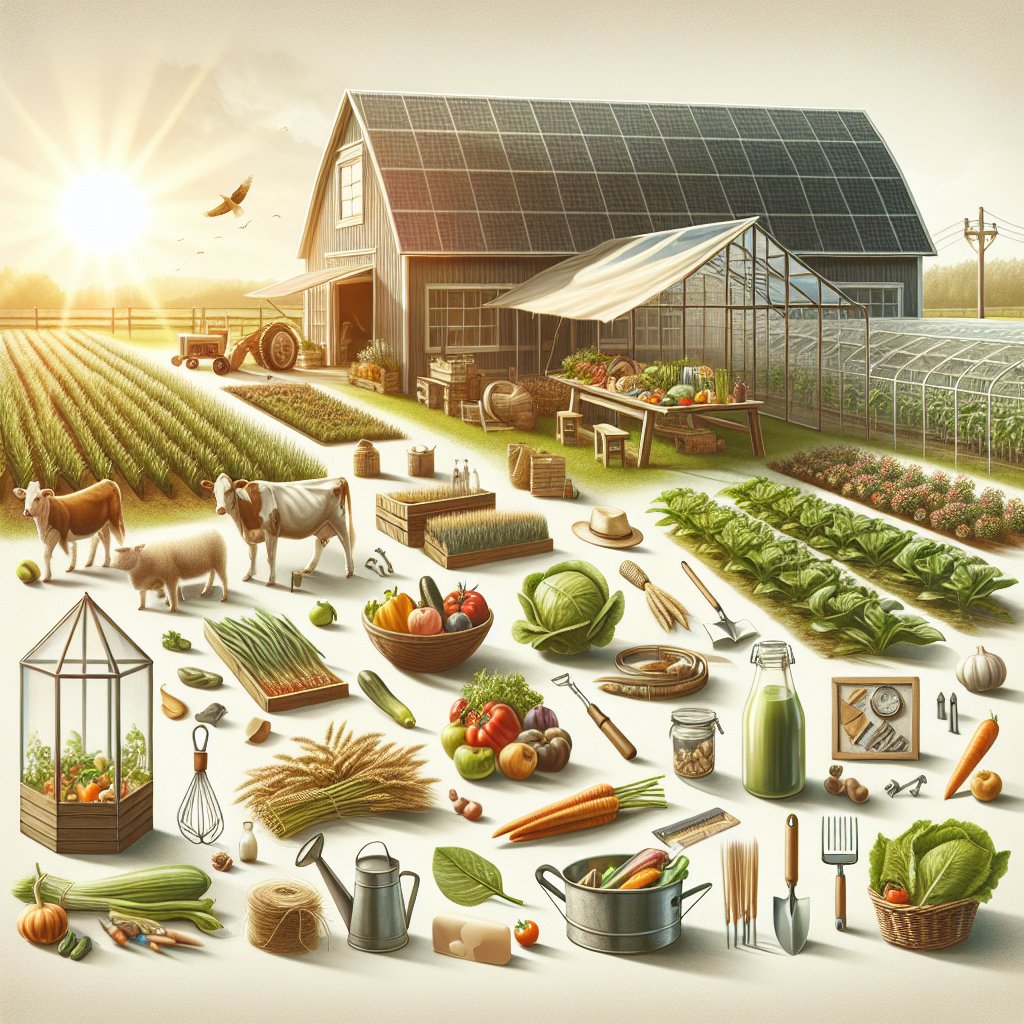Zero-waste farming techniques are becoming increasingly important as the world grapples with environmental challenges and the need for sustainable agricultural practices. By minimizing waste and maximizing resource efficiency, zero-waste farming not only benefits the environment but also enhances farm productivity and profitability. This article explores the principles of zero-waste farming and provides practical guidance on how to implement these techniques effectively.
Understanding Zero-Waste Farming
Zero-waste farming is an agricultural approach that aims to eliminate waste by optimizing the use of resources and recycling materials within the farm system. This concept is rooted in the principles of sustainability, where the goal is to create a closed-loop system that mimics natural ecosystems. By doing so, farmers can reduce their environmental footprint, conserve resources, and improve the overall health of their land.
One of the key components of zero-waste farming is the efficient use of organic matter. Instead of discarding crop residues and animal waste, these materials are composted and returned to the soil as natural fertilizers. This not only reduces the need for chemical fertilizers but also enhances soil fertility and structure. Additionally, zero-waste farming encourages the use of cover crops and crop rotation to maintain soil health and prevent erosion.
Another important aspect of zero-waste farming is water management. By implementing techniques such as rainwater harvesting, drip irrigation, and mulching, farmers can significantly reduce water waste and improve water use efficiency. These practices not only conserve water but also help in maintaining soil moisture levels, which is crucial for plant growth.
Implementing Zero-Waste Techniques on Your Farm
Transitioning to zero-waste farming requires careful planning and a commitment to sustainable practices. Here are some steps to help you implement zero-waste techniques on your farm:
1. Conduct a Waste Audit
The first step in implementing zero-waste farming is to conduct a waste audit. This involves assessing the types and quantities of waste generated on your farm, including crop residues, animal waste, and packaging materials. By understanding the sources of waste, you can identify opportunities for reduction and recycling.
2. Develop a Composting System
Composting is a cornerstone of zero-waste farming. By converting organic waste into nutrient-rich compost, you can improve soil health and reduce the need for synthetic fertilizers. To develop an effective composting system, consider the following:
- Choose a suitable location: Select a site that is easily accessible and has good drainage.
- Balance carbon and nitrogen: Use a mix of green (nitrogen-rich) and brown (carbon-rich) materials to create a balanced compost pile.
- Maintain moisture and aeration: Keep the compost pile moist and turn it regularly to ensure proper decomposition.
3. Implement Water-Saving Techniques
Water conservation is a critical component of zero-waste farming. To reduce water waste, consider implementing the following techniques:
- Rainwater harvesting: Collect and store rainwater for irrigation purposes.
- Drip irrigation: Use drip irrigation systems to deliver water directly to the plant roots, minimizing evaporation and runoff.
- Mulching: Apply a layer of organic mulch around plants to retain soil moisture and suppress weeds.
4. Practice Crop Rotation and Cover Cropping
Crop rotation and cover cropping are essential practices for maintaining soil health and preventing pest and disease buildup. By rotating crops and planting cover crops, you can improve soil fertility, reduce erosion, and enhance biodiversity on your farm.
5. Reduce Packaging Waste
Packaging waste is a significant contributor to farm waste. To minimize packaging waste, consider the following strategies:
- Use reusable containers: Opt for reusable containers and packaging materials whenever possible.
- Buy in bulk: Purchase inputs in bulk to reduce packaging waste.
- Recycle and repurpose: Recycle packaging materials and find creative ways to repurpose them on the farm.
Benefits of Zero-Waste Farming
Implementing zero-waste farming techniques offers numerous benefits for both the environment and the farmer. Some of the key advantages include:
- Environmental sustainability: By reducing waste and conserving resources, zero-waste farming helps protect the environment and promote biodiversity.
- Improved soil health: Composting and cover cropping enhance soil fertility and structure, leading to healthier crops and higher yields.
- Cost savings: By reducing the need for chemical fertilizers and water, zero-waste farming can lower input costs and increase profitability.
- Resilience to climate change: Sustainable practices such as water conservation and soil management help farms become more resilient to climate change impacts.
Challenges and Considerations
While zero-waste farming offers many benefits, it also presents certain challenges. Transitioning to a zero-waste system requires time, effort, and a willingness to adopt new practices. Farmers may face initial costs associated with setting up composting systems, purchasing water-saving equipment, and implementing new crop management techniques.
Additionally, zero-waste farming requires ongoing education and training to stay informed about the latest sustainable practices and technologies. Farmers must be proactive in seeking out resources and support to successfully implement zero-waste techniques on their farms.
Conclusion
Zero-waste farming is a powerful approach to sustainable agriculture that can help address environmental challenges while improving farm productivity and profitability. By implementing techniques such as composting, water conservation, and crop rotation, farmers can create a more sustainable and resilient agricultural system. While the transition to zero-waste farming may require effort and investment, the long-term benefits for the environment and the farm make it a worthwhile endeavor.



